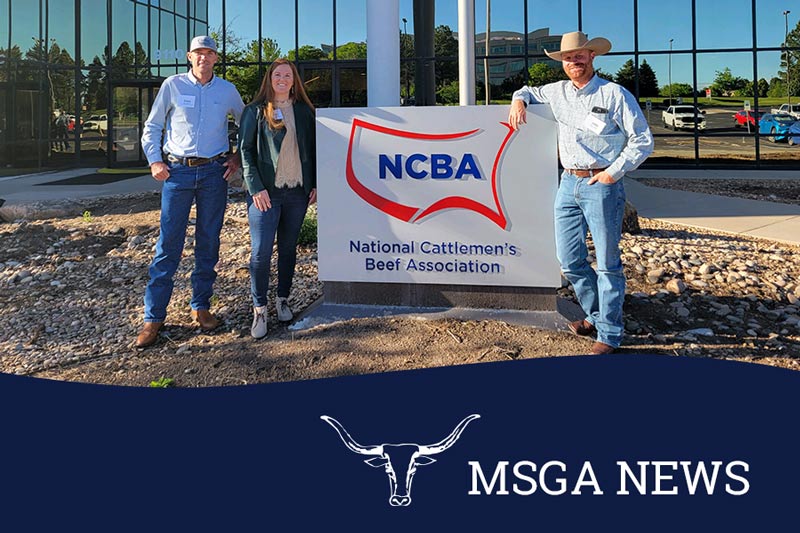This Coalition letter was sent by the Associated General Contractors, opposing a potential expansion of the 3.8 percent Net Investment Income Tax (NIIT) to include the incomes of S corporations and partnerships where the owners actively manage the business. This increase would specifically target small and family-owned Main Street businesses.
Dear Speaker Pelosi, Leader McCarthy, Leader Schumer, and Leader McConnell:
We, the undersigned organizations representing millions of Main Street businesses and employing tens of millions of American workers, urge you not to raise taxes on small, individually, and family-owned businesses as part of any effort to enact a reconciliation bill this year. In the face of a possible recession, 40-year high inflation, unprecedented supply-chain challenges, and chronic labor shortages, raising taxes on small, individually, and family-owned businesses is the wrong approach and should be rejected.
According to recent media reports, two tax increases under consideration would fall entirely on small, individually, and family-owned, closely-held businesses: 1) expanding the 3.8 percent Net Investment Income Tax (NIIT) to individuals and families who actively participate in their business, and 2) limiting the ability of small, individually, and family-owned businesses to fully deduct their losses during an economic downturn by expanding and extending the so-called “excess business loss limitation” for “noncorporate taxpayers.” Combined, these would increase revenues by more than $400 billion over ten years, shouldered entirely on the backs of small, individually, and family-owned businesses.
While expanding the NIIT is sometimes characterized as closing a tax loophole and that it would increase Medicare funding, neither of these claims are true. When the NIIT was created as part of the Affordable Care Act, it was meant to apply to investment income only. The business income of small, individually, and family-owned firms where the owners ran the business was specifically exempted. This exemption was intentional and in no way constitutes a loophole.
Moreover, the revenue raised by the NIIT does not fund Medicare. As the NIIT initially was adopted as part of a reconciliation bill, attributing the funds of this new tax to the Hospital Insurance trust fund would have violated the Byrd Rule. That is why the NIIT did not fund Medicare when it was adopted in 2010, and why attributing the revenues raised by its expansion to Medicare likely violates the Byrd Rule too.
Expanding the 3.8 percent NIIT represents nothing more than an eleven percent increase in the rates imposed on family-owned businesses. Based on Treasury data, we estimate up to 1 million small and family-owned businesses, representing over half of all pass-through business activity, would be at risk of having their rates increased under this policy. This small business tax hike would hurt the ability of businesses that survived the worst global pandemic in a century to remain viable in the coming months.
Expanding the NIIT would raise taxes on small and family-owned businesses when they are profitable, while extending and expanding the “excess loss limitation” rules would hurt them in the next downturn. During the Great Recession, many businesses were able to survive, in part, due to policies that allowed them to offset their current losses against taxes they had previously paid. These refunds were particularly important for cyclical industries such as construction, manufacturing, and travel and tourism. Extending and expanding the “excess loss limitation” rules into the future would prevent pass-through businesses from having this relief in the next recession, increasing the odds that they don’t survive.
This is ill-advised tax policy and it is being considered at a moment when the economy is no longer growing. First quarter gross domestic product (GDP) fell by 1.6 percent and many economists and forecasters predict that the second quarter GDP will also be negative. Meanwhile, the small business sector may already be in recession, as those businesses have lost employment in three out of the last four months.
Raising taxes on small and family-owned businesses with the economy on the brink of a recession, a situation which is compounded by the other post-pandemic challenges they face, harms not only the businesses but the families and communities who rely on them. We ask you to reject these or any tax hikes on America’s small and family-owned businesses in any legislation considered this year.
Sincerely,
Agricultural Retailers Association
AICC, The Independent Packaging Association
Air Conditioning Contractors of America (ACCA)
Alabama Cattlemen’s Association
American Bakers Association
American Bankers Association
American Building Materials Alliance
American Cotton Producers
American Council of Engineering Companies
American Council of Independent Laboratories
American Farm Bureau Federation
American Financial Services Association
American Foundry Society
American Hotel & Lodging Association (AHLA)
American International Automobile Dealers Association
American Lighting Association
American Mold Builders Association
American Rental Association
American Society for Surgery of the Hand
American Subcontractors Association
American Supply Association
American Trucking Associations
American Veterinary Medical Association
Arizona Farm Bureau Federation
Arkansas Cattlemen’s Association
Asian American Hotel Owners Association (AAHOA)
Associated Builders & Contractors
Associated Equipment Distributors
Associated General Contractors of America
Auto Care Association
Beer Institute
California Association of Winegrape Growers
California Cattlemen’s Association
CCIM Institute
Ceramic Tile Distributors Association
Coalition of Franchisee Associations
Colorado Cattlemen’s Association
Construction Industry Round Table
Convenience Distribution Association
Design-Build Institute of America
Education Market Association
Energy Equipment and Infrastructure Alliance
Energy Marketers of America
Equipment Marketing & Distribution Association (EMDA)
Family Business Coalition
FCA International
Florida Cattlemen’s Association
FMI – the Food Industry Association
Foodservice Equipment Distributors Association
Forest Resources Association
Forging Industry Association
Foundry Association of Michigan
Franchise Business Services
Gases and Welding Distributors Association
Georgia Cattlemen’s Association
Glass Packaging Institute (GPI)
Global Cold Chain Alliance
Heating, Air-conditioning, & Refrigeration Distributors International
Hedgeapple Farm Market
ICSC
Idaho Farm Bureau Federation
Illinois Farm Bureau
Independent Community Bankers of America
Independent Electrical Contractors
Independent Insurance Agents and Brokers of America
Indiana Beef Cattle Association
Indiana Cast Metals Association
Industrial Fasteners Institute
Institute of Real Estate Management
International Association of Plastics Distribution (IAPD)
International Foodservice Distributors Association
International Franchise Association
International Housewares Association
International Sign Association
International Warehouse Logistics Association
Kansas Farm Bureau
Kansas Livestock Association
Kentucky Farm Bureau Federation
Main Street Employers Coalition
Manufactured Housing Institute
Manufacturer & Business Association
Maryland Cattlemen’s Association, Inc.
Material Handling Equipment Distributors Association
Metalcasters of Minnesota
Metals Service Center Institute
Michigan Farm Bureau
Minnesota Farm Bureau
Mississippi Cattlemen’s Association
Montana Farm Bureau Federation
Montana Stockgrowers Association
Mortgage Bankers Association
National Apartment Association
National Association of Convenience Stores





